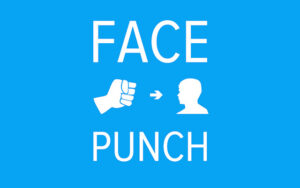Here is an interesting problem that doesn’t require crazy math skills:
I participate in a daily lottery by choosing a number from 1-100 and hope it hits. The odds of winning is 1%.
I bought a ticket, got lucky, and won today. I decide to keep playing one ticket every day until I win again, and then stop playing for good. What day am I most likely to end up stop playing (by winning the lottery that day, of course)?
- Tomorrow
- The day after tomorrow
- 50 days from today
- 100 days from today
- There is no difference, every day is equally as likely
This is not a trick question (assume unlimited funds, standard lottery, etc.), no need to consider the unusual; you just need to understand the question.
If you chose 3) or 4), you would be incorrect. If you chose 5), congratulations, you have good statistical sense, and are probably quite sure of your answer, but you are nonetheless wrong – just less wrong. The correct answer is 1), tomorrow.
Counterintuitive? Here’s why.
Yes, every day is equally likely to hit the lottery as another, namely, a 1% chance. Let’s say today is Sunday. Tomorrow (Monday) I have a 1% chance to win and stop playing. The day after tomorrow (Tuesday) also carries a 1% chance to win. However for me to stop playing on Tuesday, two things have to happen: I must win on Tuesday (1%), and on top of that, I must NOT have won on Monday (99%). So while the chance I win on Tuesday is 1%, the chance that I stop on Tuesday is not 1% but 0.99%, because I must not have already won on Monday. Each day after that, the chance that I stop on that particular day decreases accordingly, not because I’m less likely to win on that day, but because I cannot have already won any day before then. Therefore, the most likely day that I will end up stop playing is tomorrow, which carries a 1% chance. Every day after that carries a chance of less than 1%.
This is a good example of how our intuitions fail us. I stated clearly that it is not a trick question, but “you just need to understand the question”, and for good reason. The question asked was “what day am I most likely to stop playing?”, which most people immediately substituted for a much easier question, “what day am I most likely to win?”. There is a subtle but important difference, which is the hard-to-spot implied condition of previous losses. To stop playing on a day does not just mean you win that day, but more importantly it implies an exact sequence of lose-lose-…-lose-WIN!
The last option “There is no difference, every day is equally as likely” is so appealing because it is a true statement. The statement just happens to be irrelevant to the question. It’s a powerful technique, a mental sleight of hand, widely used by marketers, politicians, and spouses.

